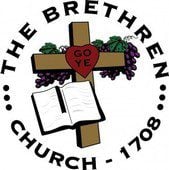The Bible is not a marriage handbook, but it certainly gives a lot of information on how to be a good spouse. This is not to say that the Bible gives explicit instructions on how to do this. Rather, it gives general guidelines in a broad sense, while exhorting Christians to be godly people who follow Christ. With that being said, as we examine the Holy Scriptures we will be able to ascertain how to be more trustful in our marriages. Here are the top 7 Bible verses about trust in marriage.
“Let marriage be held in honor among all, and let the marriage bed be undefiled, for God will judge the sexually immoral and adulterous.” Hebrews 13:4 ESV
If both spouses are holding marriage in honor, they will want to be open and honest with each other. And, as this verse is suggesting, they will be faithful to one another in all areas. When both spouses are following the Lord completely, it is much easier to have trust in the marriage.
“Thus says the Lord: “Cursed is the man who trusts in man and makes flesh his strength, whose heart turns away from the Lord.” Jeremiah 17:5 ESV
Each person in the marriage must be relying on the Lord if trust is going to abound. If one of them begins relying on their own wisdom, intellect, or strength then trust will start to crumble.
“And Pharisees came up to him and tested him by asking, “Is it lawful to divorce one’s wife for any cause?” Matthew 19:3 ESV
Divorce should not be a threat in a trusting marriage—in fact it should be seen as something deplorable and never to be done. Again, though, that’s in a marriage that is full of trust. Unfortunately, there are some marriages where people are unfaithful, hurtful, or worse.
“For the man who does not love his wife but divorces her, says the Lord, the God of Israel, covers his garment with violence, says the Lord of hosts. So guard yourselves in your spirit, and do not be faithless.” Malachi 2:16 ESV
The trusting marriage is a guarded marriage. Both spouses will guard themselves individually and together as a couple. They will guard themselves from outside forces that try to tear them apart.
“The heart of her husband trusts in her, and he will have no lack of gain.” Proverbs 31:11 ESV
This is more of the result from having a trusting marriage. Without trust, neither spouse will be vulnerable with one another, share struggles, or have open communication.
“Therefore, since we are surrounded by so great a cloud of witnesses, let us also lay aside every weight, and sin which clings so closely, and let us run with endurance the race that is set before us, 2 looking to Jesus, the founder and perfecter of our faith, who for the joy that was set before him endured the cross, despising the shame, and is seated at the right hand of the throne of God.” Hebrews 12:1-2 ESV
Once again, the key to trust is to continually be looking unto Jesus. If both spouses are doing that privately and also together as a team, they have all the tools they need in their marriage. After all, Jesus is the perfection of all things!
“Catch the foxes for us, the little foxes that spoil the vineyards, for our vineyards are in blossom.” Song of Solomon 2:15 ESV
This reference is referencing what happened to the people during that time; those who had Vineyards would often find that foxes made their way in and spoiled some of their garden. In a similar way, there are things in a marriage the creep in and try to ruin a marriage: secrets, lies, other people—the list goes on.
Conclusion
Although I’ve only been married for a handful of months, I already have come to realize the importance of trust in my relationship with my wife. Once trust breaks down, communication becomes harder, bad moods become a constant, and more difficulties arise. But, the only way that trust can continue is if it’s continually worked on and both spouses are on board. If not, than trust really will not happen. All in all, though, it starts, ends, and sustains itself in the Lord Jesus Christ.
Article by Michael Krauszer















